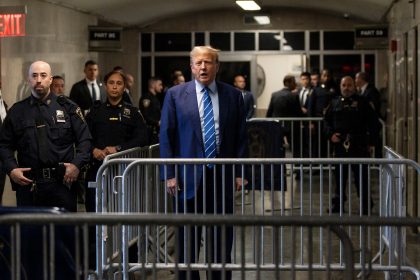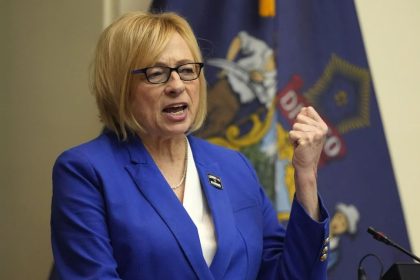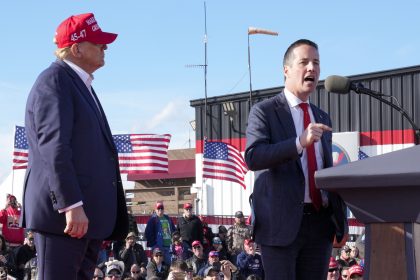Filing a Complaint With FEC Commission the Start of A Long and Winding Process

WASHINGTON – Every month an email from the Federal Election Commission arrives in the inbox with a certain insouciant inevitability.
“Pending advisory opinion requests,” it says.
“That’s right,” you say to yourself. “They’re back to not having a quorum on the commission board.”
It’s never a long list, and in no way is it a commentary on how hard staff and staff attorneys at the FEC continue to work day in and day out.
Nevertheless, the email always has a whiff of the slow-grinding gears of government about it.
“Contribution limit, primary date, and salary eligibility for independent presidential candidates,” one entry says. “Received July 15, 2020.”
Below that line the entry reads, “Extension of time granted on July 21, 2020 for 20 days following the date that the commission holds its first open meeting at which a quorum of at least four commissioners is present.”
Leaving aside the obvious bureacrat-ese of the language, it gives one pause.
“Wasn’t there a story this week about a complaint filed with FEC against the Trump re-election campaign?”
“What will the lack of a quorum on the board mean to the case being resolved before the November election?”
Curious, we first reached out to the FEC, which confirmed via email that “without a working quorum of at least four commissioners, the agency is unable to move forward on newly filed complaints.”
We then turned to the plaintiff, the nonpartisan Campaign Legal Center, which has alleged the Trump re-election campaign unlawfully laundered roughly $170 million dollars through a straw vendor.
The campaign has denied the accusation.
“AMMC is a campaign vendor responsible for arranging and executing media buys and related services at fair market value,” said Tim Murtaugh, Trump 2020 communications director.
“AMMC does not earn any commissions or fees. It builds efficiencies and saves the campaign money by providing these in-house services that otherwise would be done by outside vendors. The campaign reports all payments to AMMC as required by the FEC. The campaign complies with all campaign finance laws and FEC regulations,” Murtaugh said.
“But what about the day of reckoning before the FEC board?” we asked once we had Brendan Fischer, CLC’s director of federal reform, on the phone.
“How do you feel about your complaint likely not getting anywhere until after the election?”
“I don’t know that it’s particularly significant,” Fischer said. “Even if the FEC had a full set of commissioners, we would not expect this to get resolved for probably two or three years.”
“That’s fairly common with these more complex complaints,” he said. “That said, the initial stages of the complaint process are going to move forward, regardless of whether the board has a quorum.”
In the case of a complaint like the one filed against the Trump campaign, staff attorneys will begin to review the accusations, and share the complaint with the campaign so that its lawyers can issue a written response.
Once the FEC attorneys complete their preliminary review and investigation — a process that typically takes anywhere from six to eight months — they’ll draft a report making a recommendation to the full commission on whether they believe the relevant election law has been violated.
“It’s at that point that we need the commission to have a quorum,” Fischer said. “Then the commission can vote on the recommendation and authorize a decision — and that’s effectively the beginning of the process to achieve a negotiated settlement.”
Fischer said while no one can predict when the commission quorum will be restored, “it’s fairly possible it will be restored sometime in 2021.”
Assuming all this occurs in the timeline described, what could the repercussions for the Trump campaign be in 2023?
“Well, the first thing, if the staff attorneys and the commission agree a violation has occurred, in the imposition of civil penalties, most commonly a fine,” Fischer said.
“Along with that there would likely be an agreement stipulated that the campaign not engage in similar activity in the future,” he added.
The question then was, “Does filing a complaint under the current circumstances pay?”
If Trump were to win a second term, he’d be on the verge of leaving office before the campaign faced the possibility of a sanction.
If he’s not re-elected, the 2020 campaign will be a distant memory.
“This filing — and many filings — are really about preventing a campaign from setting the precedent that some behavior they’ve engaged in is permissible,” Fischer said.
“That’s because very often what happens in this realm is that one candidate or political committee will pioneer a particular activity that pushes the legal envelope of what’s permissible in an election,” he said. “Once that happens, and if it goes unchallenged, other candidates and committees will begin to replicate that same activity.”
“Along with that, of course, and particularly in regard to this complaint, we believe it’s the public’s right to know how campaign money is being spent,” Fischer concluded.























